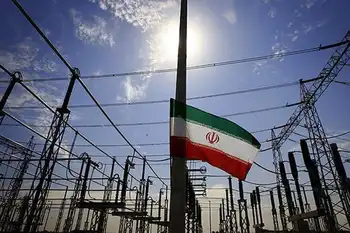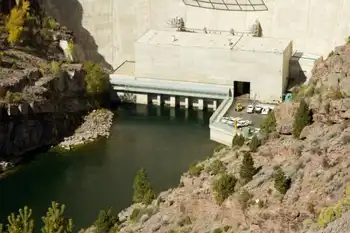Poor hit back at rich over carbon emissions
Developing countries have been ramping up voluntary efforts to curb emissions but wealthy states want these steps to be legally binding to make it easier to gauge the global level of ambition to fight climate change.
In short, they want such steps added to a registry or appendix, or to "write them on a piece of paper," one delegate from a rich country told Reuters. That would also help determine how much cash rich nations could give to poorer states to adapt to climate change impacts and to green their economies.
Developing countries, though, fear a formal registry would mean meeting legally binding carbon curbs, something they say existing U.N. rules don't oblige them to commit to.
Rich nations want to create a more flexible arrangement than the current Kyoto Protocol that would allow all nations to choose emissions reduction steps according to their circumstances.
The demand has become a major focus of U.N. climate talks in Bangkok but has drawn the ire of some developing nations, particularly for voluntary steps not funded by rich countries.
"We will do our measurement, reporting and verification. But it's our initiative. It's none of their business," said Agus Purnomo, head of the Indonesian delegation at climate talks in Bangkok.
"If they put money, if they supported us, yes, part of what we're doing becomes their business."
Some green groups fear the evolving debate on what is called the architecture of a new climate agreement might lead to backsliding on steps to curb, or mitigate, emissions. But Australia, which has proposed what it calls national schedules, says this isn't so.
"At its core it is a simple idea," Australia's climate change ambassador Louise Hand told delegates in Bangkok.
"Each party would have a national schedule attached to the treaty. In the schedule would be parties' mitigation actions — economy-wide targets for developed countries; a suite of actions for developing countries," she said.
"Schedules do not represent any backsliding from Kyoto," she added and that a motivation was to retain key elements of the Kyoto Protocol by committing developed countries to hard targets.
Developing nations aren't bound by economy-wide emissions reduction targets under Kyoto and say there is no reason to reformulate the pact into a more flexible framework.
Kyoto binds only rich nations to emissions targets from 2008-12. The United States never ratified Kyoto.
"We have to maintain the integrity of the process by maintaining the instruments and protocols," said Lumumba D'Aping of Sudan, chair of the G77 plus China negotiating group.
"Protection of and respect for the Kyoto Protocol is a must. It's a misguided and total waste of effort by developed parties to try to create a parallel process for the negotiators," D'Aping said in Bangkok.
Talks under way in the Thai capital are trying to trim a draft text that will form the basis of a broader climate pact.
The United Nations has set a December deadline for nations to decide on a pact to expand or replace Kyoto, whose first phase ends in 2012, with the aim of trying to find a way to draw in developing nations into the global fight against climate change.
Developing nations such as China, India and Indonesia are among the world's top carbon dioxide (CO2) emitters.
Under the emerging framework, the United States has proposed that CO2 reductions be binding under domestic law and registered internationally but not the subject of a binding treaty.
Programmes to cut emissions would be placed in an appendix bound same by the same legal language in which all countries list what they are prepared to do.
Others say the resistance by developing countries is a tactic. They point to pledge by poor nations at a U.N. climate meeting in Bali in 2007 to make "nationally appropriate mitigation actions" that are "measurable, reportable and verifiable."
Developing nations were concerned that some of the proposals on a new climate framework would seek "to establish escape clauses or options for economy-wide targets by developed countries," said Barbados delegate Selwin Hart.
"How can one assess comparable effort if we have a system of flexible targets?"
Related News

Canadian gold mine cleans up its act with electricity
TORONTO - Mining operations get a lot of flack for creating environmental problems around the world. Yet they provide much of the basic material that keeps the global economy humming. Some mining companies are drilling down in their efforts to clean up their acts.
As the world’s fourth-largest gold mining company Goldcorp has received its share of criticism about the impact it has on the environment.
In 2016, the Canadian company decided to do something about it. It partnered with mining-equipment company Sandvik and began to convert one of its mines into an all-electric operation, a process that is expected to take…




